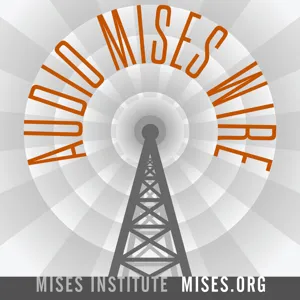Podcast Summary
SAVE plan evolution: The SAVE plan is the latest income-dependent student loan repayment plan, setting payments based on a borrower's income and number of dependents, marking a continuation of the government's involvement in student loan financing since the 1960s.
The SAVE plan, or Saving on a Valuable Education plan, announced by President Joe Biden and Secretary of Education Miguel Cardona, is a new income-dependent student loan repayment plan. This plan is a response to the Supreme Court's decision that the administration's original student loan forgiveness program was unconstitutional. The SAVE plan sets payments based on a borrower's income and number of dependents. It is the latest in a series of income-dependent repayment plans that have evolved since the 1960s, when student loans were repaid in a straightforward installment-style plan. The federal government's involvement in student loan financing began with the Income Contingent Repayment Plan in 1993, which set payments at 20% of discretionary income and forgave any remaining debt after 25 years of eligible payments. Income-based repayment, introduced in 2007, calculated monthly payments based on what a student could afford to pay, rather than what was owed. The Health Care and Education Reconciliation Act of 2010 consolidated the lending and collecting of loans within the Department of Education, nationalizing the student loan process. The SAVE plan is the latest installment in this evolution, and while it may provide relief for some borrowers, it also raises concerns about the potential for the government to control higher education.
SAVE plan and loan forgiveness: The SAVE plan, a student loan repayment program, uses a lower percentage of income from those earning poverty wages to assess payments and aims to forgive unpaid balances for consistent payers, costing around $230 billion.
The SAVE plan, which is a student loan repayment program, uses a higher percentage of poverty wages to calculate disposable income and then assesses a lower percentage of that income for payments. This plan, which was implemented with varying multipliers over the years, aims to forgive unpaid student loan balances for those with a record of consistent payments. The DOED has used extralegal authority to forgive debts for certain groups, totaling $73.7 billion. The SAVE plan also makes previously ineligible loans available through the Fresh Start program and automatically enrolls delinquent loans into the program. The ultimate cost of implementing SAVE is uncertain, with estimates suggesting it could cost around $230 billion. The program aims to simplify the student loan repayment process by bringing all loans under one department and one process, directed by the president.
Student Loan Forgiveness Legal Challenges: The SAVE plan for student loan forgiveness faces legal challenges and uncertain costs, with potential modifications by the president and ongoing debates about federal control of education and taxpayer protection. Careful consideration and transparency are needed to ensure its benefits outweigh its costs.
The SAVE plan for student loan forgiveness, set to begin in July 2024, is subject to legal challenges and has uncertain costs due to its variable monthly payments and potential modifications by the president. The plan's future is in flux, with ongoing enrollment bans in some states and ongoing debates about its potential impact on federal control of education and taxpayer protection. The courts' challenge to the plan is significant, and responsible measures in Congress aim to cap the program and protect taxpayers from potential mismanagement. However, the political landscape and ongoing COVID-19 situation add complexity to the situation. In essence, the SAVE plan's future remains uncertain, and careful consideration and transparency are needed to ensure its benefits outweigh its costs.

